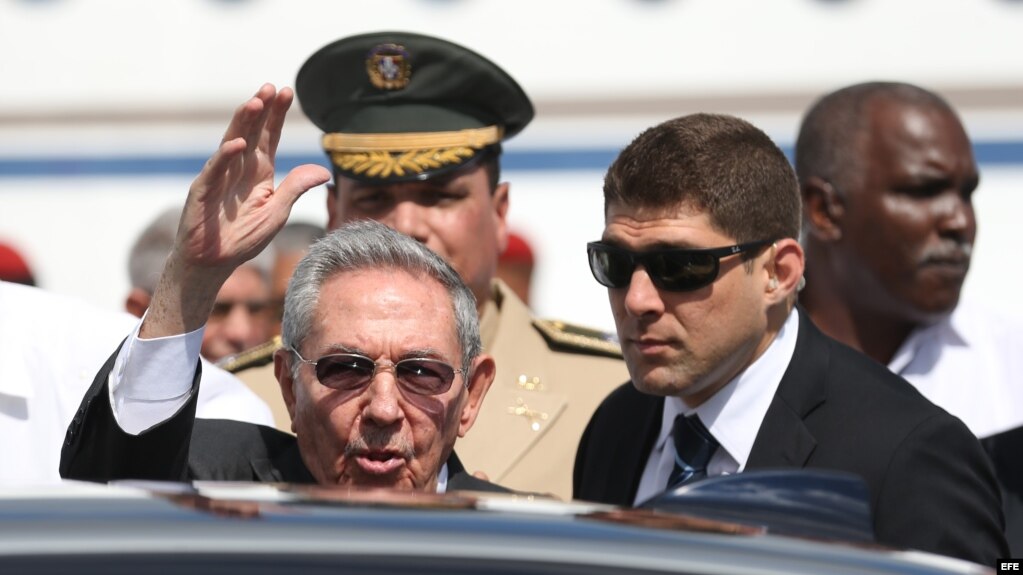The Secretary General of the OAS scandalizes Latin American politicians, diplomats and intellectuals for calling 'dictatorzuelo' to the 'dictatorzuelos'
(PD) In announcing that he would travel to Havana to receive a prize from dissidents demanding democracy in Cuba, OAS Secretary General Luis Almagro has forced the regime of Raúl Castro to ban him from entering with rather ridiculous arguments. Almagro has taken the opportunity to teach the dictatorship with a class about democracy: he has explained that he wanted to "honor the memory of Oswaldo Payá," a pro-democracy activist probably assassinated by the regime, and has asked him not to criminalize Cuba Decide Founded by the daughter of Payá) because the constitutional mechanisms of direct democracy that proclaim the necessity of a plebiscite in Cuba are "an essential instrument for the expression of the towns".
With this and other such actions, the Secretary General of the OAS continues to receive praise in public and private, but also comes scandalizing a number of Latin American politicians, diplomats and intellectuals, who are concerned that the former Foreign Minister of Mujica is calling Dictatorship to dictatorships and reaching out to civil society groups in countries governed by authoritarian regimes, even without their permission.
MORE INFORMATION
Cuba prevented from entering the head of the OAS in La Haban to
Cuba denies entry to Mexican president Felipe Calderon to an act of an ON G
The scandalized come in two types, those that are public in its rejection of Almagro, that is, the officials and supporters of the dictatorship of Cuba and the authoritarian regimes of Venezuela, Bolivia, Ecuador and Nicaragua, and those who do it in Secret, "diplomatically," because they are "career" officials of how much Latin American chancery has formed them in the ascetic arts of maintaining the same label and protocol - effective, gentle, and obsequious-- under today's elected president, the anti-Communist caudillo of Tomorrow, and the left-wing dictator the day after tomorrow.
Critics of Almagro wield two important arguments. One is that, according to them, the OAS is no different from the UN in that it is simply an intergovernmental organization in charge of providing a platform to the representatives of countries, and, therefore, it must have within it the same right to Voice and vote, and with the same honors due to any head of state, Allende as Pinochet, Videla as Alfonsin, Carlos Andres Perez as Nicolás Maduro. The second argument is that what Almagro criticizes the Venezuelan regime is contrary to the tradition of the OAS, since, although from its creation in 1948 it would theoretically have been interested in promoting values of representative democracy, in practice From its pulpit was criticized only to the dictatorship of Castro in Cuba, that was suspended in 1962, and an accomplice silence was kept before the anticommunist dictatorships of the whole continent during the Cold War.
Critics of Almagro are mistaken twice. Unlike the UN that has had two dictatorships (China and Russia) in its Security Council since its inception, the OAS is an organization created by democracies and dedicated to democracy.From its beginnings, with the adoption of the OAS Charter in 1948, with greater force since the 1992 Charter reform, and culminating in the adoption of the Inter-American Democratic Charter (IDC) in 2001, the OAS has a duty to Promote the essential elements of democracy: freedom of the press, independence of the judiciary, free and fair elections, and alternation of power.
Moreover, while the dictatorships of Saudi Arabia, China, Cuba, Egypt and Rwanda are members of the Human Rights Council, the Secretary General of the OAS is obliged to seek the "suspension of all participation in OAS organs "Of any undemocratic regime that would have taken control of the government of a member state, either because it came to power through a coup against a democratic president, or because, having been elected in free and fair elections, it eroded democracy A gradual, sustained and systematic way to the point of becoming an authoritarian or dictatorial regime, as is the case of Venezuela, where there is no guarantee of future elections.
It is not true that the OAS did not say anything during the Cold War. Although he remained silent before the dictatorships of Videla and Pinochet, the OAS was then able to condemn the tyrannical regimes of Trujillo in 1960, Castro in 1962, Somoza in 1979, and Noriega in 1989, even without tools such as Democratic Charter.
The first two convictions, against Trujillo and Castro, were made possible by former Venezuelan President Rómulo Betancourt, a social democratic leader of principles who believed in an OAS without dictatorships and who reminded Almagro much.
Hispanic Americans who are lucky not to live in dictatorship, we must abandon the indifference because it leaves the microphone to those who are scandalized by the actions of Almagro. Instead, we must support loudly the millions of Venezuelans and Cubans who are risking their lives today to demand democracy in their countries. We must support Almagro.
G.lopezrayneri@gmail.com, Guillermo López Rayneri







